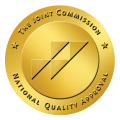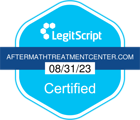Dual diagnosis describes the co-occurrence of a mental health condition and substance use disorder. It occurs when an individual experiences both conditions at the same time, which is very common. Dual diagnosis treatment requires a comprehensive evaluation by professionals in order to create an effective treatment plan for individuals who may need various treatment strategies in order to address their unique mental and physical health situations.
At Aftermath Addiction Treatment Center, we understand the challenges of overcoming addiction. Our programs in Wakefield, MA were founded and designed by people in recovery who have firsthand experience working through the process of maintaining sobriety. Our staff works with patients on a personal level to help them find the treatments, community support, and guidance they need to make lasting changes in their lives. For more information, reach out to our team of experts today at 855-795-1226.
What Is Dual Diagnosis?
Dual diagnosis is the simultaneous occurrence of both a mental health condition and a substance use disorder in an individual. In a majority of cases, those experiencing addiction will also be found to have some type of mental health condition that contributes to the presence of addiction. Dual diagnoses help treatment providers to understand the full picture of an individual’s health situation and provide more tailored and appropriate treatment interventions based on their unique needs.
By recognizing pre-existing mental health issues, dual diagnosis approaches may be able to increase the chances of successful outcomes while also helping individuals find sustainable paths toward long-term sobriety.
Dual Diagnosis Program
Dual diagnosis treats patients with both a mental health condition such as depression, anxiety, bipolar disorder, or schizophrenia and an addiction to drugs or alcohol. This is an important consideration to make, as a person may need specialized treatment for both conditions in order to achieve long-term sobriety and mental health stability.
A dual diagnosis treatment program provides integrated care that addresses both the underlying mental health issues along with addiction. This holistic approach might include a combination of the following:
- Individual therapy sessions
- Group counseling
- Cognitive-behavioral therapy
- Dialectical behavior therapy
- Trauma-informed therapy
- Personal case management
Our aftercare services also help to reduce the risk of relapse by providing individuals with the necessary resources to maintain sobriety and manage their co-occurring mental health condition. These services serve as an important source of ongoing emotional, psychological, and practical support for those in recovery. Through aftercare, individuals can develop healthy coping skills, establish healthy boundaries, and build strong relationships that support them in their recovery journey.
Benefits Of Dual Diagnosis Treatment Programs
Dual diagnosis treatment programs for addiction combine evidence-based treatments for both addiction and mental health conditions, allowing clients to receive comprehensive care that addresses all their needs.
Comprehensive Care
The primary benefit of dual diagnosis is that it allows clients to focus on their two conditions simultaneously. Traditional substance abuse programs often fail to address the underlying mental illness, while psychiatric treatment alone may not be sufficient to manage an individual’s addiction. Dual diagnosis treatment provides a holistic approach that integrates evidence-based treatments for both conditions together in order to help them heal.
Continuity Of Care
Oftentimes, individuals who experience addiction need help from multiple specialists in order to address their personal needs. Clients who enter this type of program can expect to receive comprehensive care from a team of healthcare professionals, including counselors, psychiatrists, nurses, social workers, and other specialists who are experienced in treating various types of co-occurring disorders. This ensures each client receives personalized attention tailored specifically to their individual needs.
Personalization
Dual diagnosis addiction treatment offers clients a sense of hope, knowing that they are being treated as an individual. Knowing that someone understands what you’re going through can make all the difference when it comes to achieving lasting recovery from addiction and mental illness. By providing integrated care for both conditions, dual diagnosis can give clients the tools they need to create meaningful change in their lives and find long-term sobriety.
Aftermath Addiction Treatment Center for Dual Diagnosis in MA
At Aftermath Addiction Treatment Center, we understand how difficult it can be to overcome the grip of addiction. Our dual diagnosis program is designed to provide the highest level of care and support for those struggling with both substance abuse and mental health issues. We take pride in offering the guidance and wisdom we have learned from walking the path of recovery ourselves.
Our team of experienced professionals has developed an integrated treatment program that combines evidence-based therapies, individualized counseling sessions, and holistic healing approaches in order to facilitate long-term recovery. We believe that no one should suffer through addiction alone. If you or a loved one needs help to overcome an addiction, contact our team of addiction treatment experts today at 855-795-1226.




